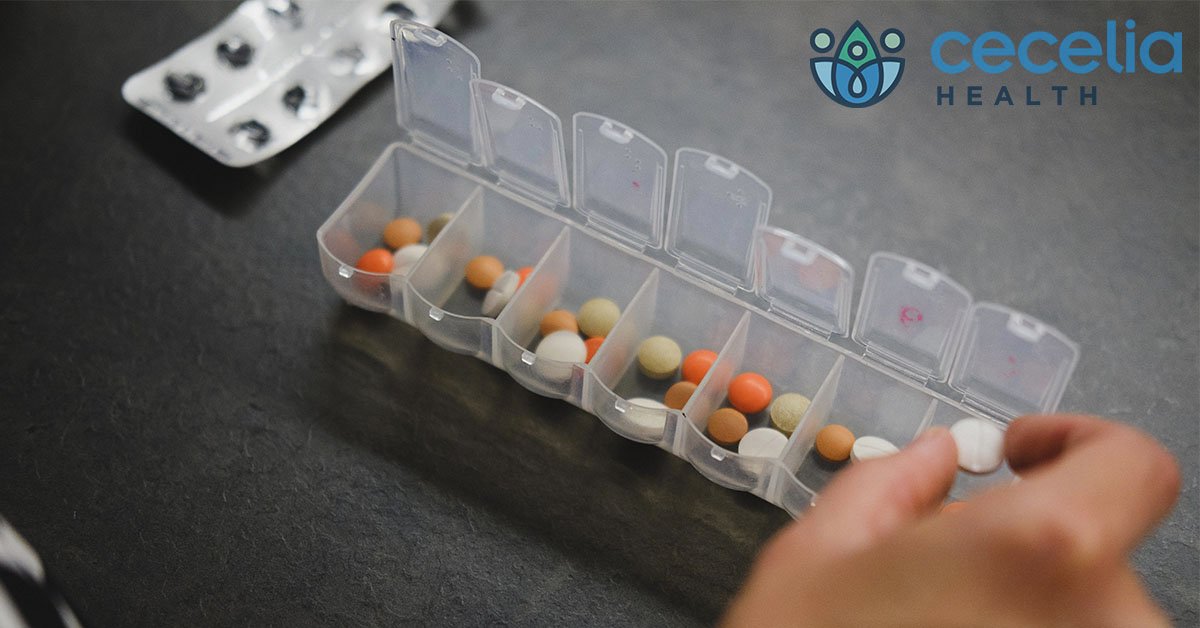Think back to the last time you were at a drugstore. It might have been pre-pandemic! Can you visualize standing in front of shelves and shelves of supplements all promising to make you healthier? You’re seeing just one tiny piece of the $40 billion dietary supplement industry in the US. While we have nearly 40 medications that have been proven to treat diabetes, supplements continue to spark interest. To some people, they seem more natural or healthy than medications. So how effective are these supplements and can they replace medications?
Supplements versus Medications
Supplements and medications have very different levels of oversight in the US. Supplements are regulated more like food than medications. Supplement makers don’t have to test their supplements to ensure they work or to ensure they are safe. If a supplement is found to be unsafe, the Food & Drug Administration (FDA) is responsible for removing it from the market, but that’s only after it has caused harm.
Medications have much stricter regulations. They are first assessed in a laboratory and then they go through several phases of research trials in people. The trials are used to determine how the medication is processed in the body, whether it actually works, what dose provides the most benefit with the least side effects, and how the medication compares to others on the market.
Challenges with Supplements
Since supplements are not strictly regulated, there can be risks involved when taking them. Most supplement makers follow the rules and are accurate about what’s in their supplement. However, some makers are less concerned about safety. There can be mistakes in labels with inaccurate ingredients or doses. In 2018, a study published by the California Department of Public Health found over 700 dietary supplements that had the potential to cause harm.
Some supplement makers send their supplements to testing agencies to receive a quality seal. Examples of these agencies are NSF International, US Pharmacopeia, and Consumerlab. Supplements with these seals have been tested to ensure they have an accurate list of ingredients and they don’t have harmful ingredients.
Even if the labels are accurate, it’s always important to tell your health care team about the supplements that you take. Sometimes the natural ingredients in supplements, such as vitamins, minerals, and herbs, can interfere with your medications. For example, taking aloe vera or ginseng with some types of diabetes medications can increase your risk of low blood sugar.
Do Supplements Work for Diabetes?
Several supplements have been studied to determine if they can help people with diabetes. Chromium, magnesium, and cinnamon are a few of the popular supplements for diabetes.
Chromium is a mineral that is required by your body to use glucose. Your body needs very small amounts which you get from your diet. After reviewing 25 studies on chromium, researchers determined that it can slightly improve blood sugar levels for people with type 2 diabetes when used in addition to diet, exercise, and medication recommendations. Chromium supplements can have negative side effects, including stomach pain, bloating, and kidney damage.
Magnesium is another mineral needed by your body to use glucose. People who have low levels of magnesium may be more likely to develop diabetes. However, research hasn’t show that magnesium supplements can help people with diabetes or prevent people from developing diabetes. Large doses of magnesium can cause diarrhea, abdominal cramping, and in extreme cases, death.
Cinnamon is thought to improve blood sugar levels, possibly by decreasing insulin resistance. Some studies show cinnamon can reduce blood sugars and other studies show no effect. Since the results are so mixed, most diabetes organizations don’t recommend cinnamon supplements as part of a diabetes treatment plan. For people with liver disease, large doses of cinnamon supplements can be harmful.
For a summary of the research on other dietary supplements, visit the Diabetes and Dietary Supplements page of the National Institutes of Health (NIH) website.
The Bottom Line
While supplements might sound like a healthier or more natural option than medications, they are not always safe and they haven’t been tested to ensure they work. Of all the supplements marketed towards people with diabetes, chromium has the most promise but it’s not more effective than diabetes medications. If you’d like to trial a supplement to see how it works for you, talk with your health care team about options. Be open and honest in these discussions so your team can support you in managing your diabetes and prevent any possible health risks.
